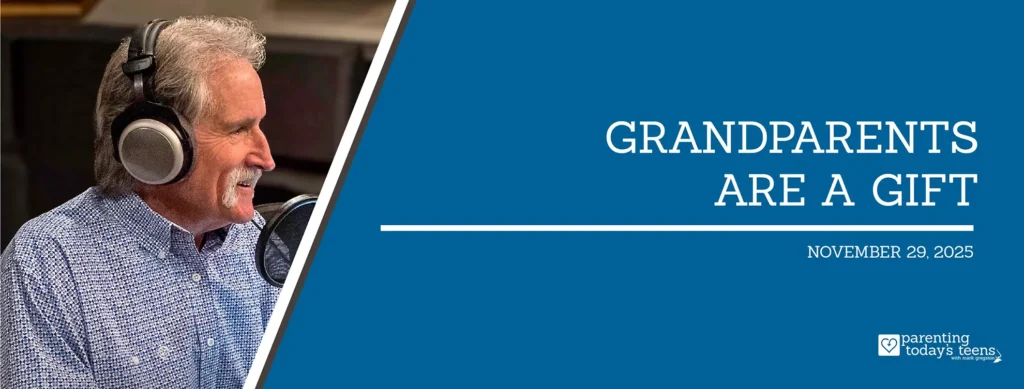Ephesians 4:29 says, “Let nothing foul or dirty come out of your mouth.” Yet, in my many years working with troubled teens, I’ve been cussed out, yelled at, and received tongue lashings from adolescents who were angry and hurting. For years, I took it personally, because I was thinking of myself. But, when I began to understand that these teens had adopted these behaviors for a reason, I started to think about why they felt the need to engage this way.
I’m sure many parents have been chewed out by their teens. Let’s talk about why teens’ tongues turn toxic and how parents can lovingly guide them to a better place.
Why Teens Curse
Words are the audible expressions of the invisible issues your teen is dealing with. There’s a reason your teen has chosen this mode of communicating. No matter how offensive they are, this is how they are communicating their emotions. Those hurts need to be addressed before you can expect to see a change in the way they speak. Let’s look at some reasons why teens’ tongues turn toxic.
-
- Your teen is displacing their emotions from other areas of their life. Many times, something has happened, and they’re taking it out on you. As a parent you want to be a safe place for your teen to communicate their true feelings, but you also don’t want them to become disrespectful. I get it. What you need to remember is that their inappropriate language is an external expression of the deeper issues growing below the surface. Your job is to help your teen identify what they’re really upset about and how to express themselves appropriately.
- Some teens truly believe harsh words perfectly describe how they feel.You’ll always have “that teen” who feels like cuss words are the only way to describe how they feel. It’s easy to shut them down, but sometimes it’s better to let them “spew” and then have a discussion after they’ve gotten it all out. It can be frustrating, but parents need to be more concerned about what’s in their teens’ hearts, rather than correcting their inappropriate language.
- Your teen is desperate to get your attention.Your teen might also be yelling the way they do, because they can’t get your attention any other way. Parents are busy with work, caring for other children, and dealing with their own emotions. They can also become distracted and miss the more subtle clues their teen has tried to send. In the end, some teens yell and cuss because it is the only way they can get you to listen.
- Monkey see, monkey do. Sometimes a belligerent teen is just copying the way Mom and Dad communicate. If you use harsh language and yell when you’re upset, don’t be surprised when your teen behaves the same way; and don’t expect your teen to apologize first. You set the tone and temperature at home. If you need to change, do it! Apologize to your teen for your mistakes, and learn how to communicate better together.
Strategies to Get Your Teen to a Better Place
Here are some strategies parents can put into action to help teens express themselves appropriately and learn how to communicate what they are really feeling, without four-letter words.
-
- Let your teens talk and let them know you’re listening.Create a safe space for your teen to express themselves, even when their delivery is poor. Sometimes teens need to get their emotions out before they can have a rational conversation. So practice listening before offering advice. Do not make any immediate judgments. Instead listen and make your teen feel like you value their thoughts and feelings.
- Set boundaries when your teen crosses into disrespect.If your teen gets out of bounds, let them know: “Hey, I want to hear what you’re saying but you’re crossing the line.” It’s okay to call them out, while keeping communication open. Don’t be afraid to be honest.
- Validate your teens feelings.Acknowledge your teens’ emotions without endorsing their method of expression. Let your teen know that you understand what they’re saying. It is possible to understand your teen’s heart while still addressing their style. Communicate above all else that you love them and want to understand how they feel.
- Suggest a calm environment for deeper conversation.When things calm down, sometimes teens need a new location to keep talking. Offer to take your teen out to eat, get coffee, or grab dinner and talk. Sometimes a change of scenery allows for healthier modes of communication.
- Acknowledge your part in the problem.Realize that some of the frustration expressed might be aimed at you. Acknowledge what you need to change and offer apologies for not being more sensitive to what they’ve been trying to communicate. Apologizing when your wrong and letting go of pride are powerful steps to rebuild a damaged relationship with a teen.
- Recognize your teen’s desperation to be heard.Behind the noise, parents should realize that their teens want to communicate and will go to dramatic degrees to make sure they’re being heard. When you understand this desperation, you can respond with compassion.
- Let your teen know you are listening.Repeat over and over: “I hear you” or “I get it” or “I can see why you feel that way.” These simple phrases can help relieve tension and show your teen you’re genuinely trying to understand. Sometimes, simply listening can be so the most impactful thing you can do.
- End every conflict with affirmation.Say something like, “I want you to know how much I love you, and I know I’m a part of the problem. Can we talk more over the next couple of days?” This keeps the relationship intact, even when the conversation has been difficult.
Conclusion
When your teen is struggling, it’s far better to have them verbally express themselves, even if it’s rough, rather than clam up and shut down. I’m not saying it’s okay for teens to cuss parents out and yell at everyone, but I am saying that when your teen gets to the point that they violate what they’ve been taught and how they’ve been raised, it’s a warning light on the dashboard of your teen’s life. Something is happening.
When the situation cools down, it’s time to start up a discussion to help get to the root of the issue that has caused the outburst. If your partly to blame for the volatile situation, then address that first. If it’s a loss or difficulty at school, have a discussion and listen. If it’s a breakup with a girlfriend or boyfriend, then an empathetic ear always helps. Your teen just wants to be heard, and they’ve resorted to yelling to get someone’s attention. Your job is to focus on what’s causing the outburst, more than the fact that they use words that are inappropriate.






